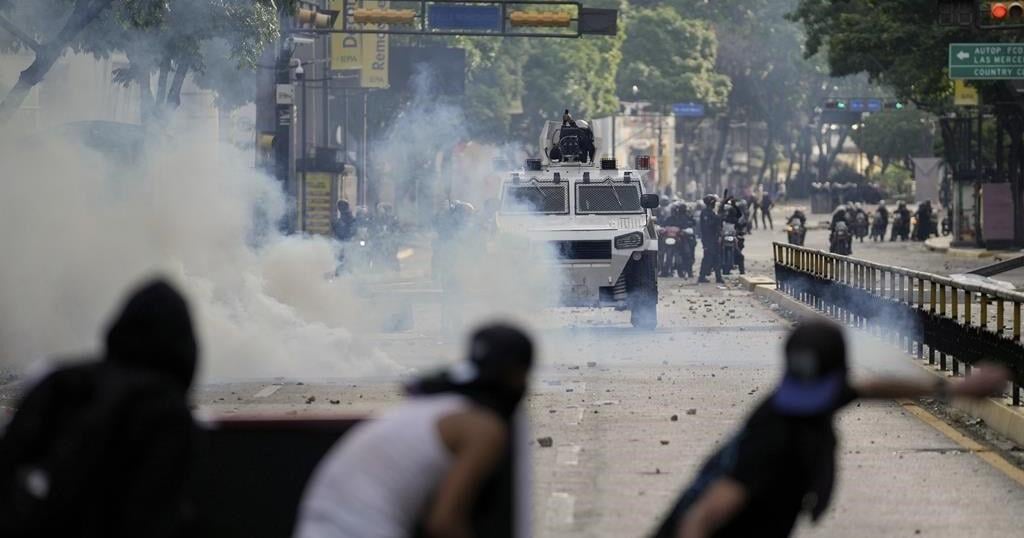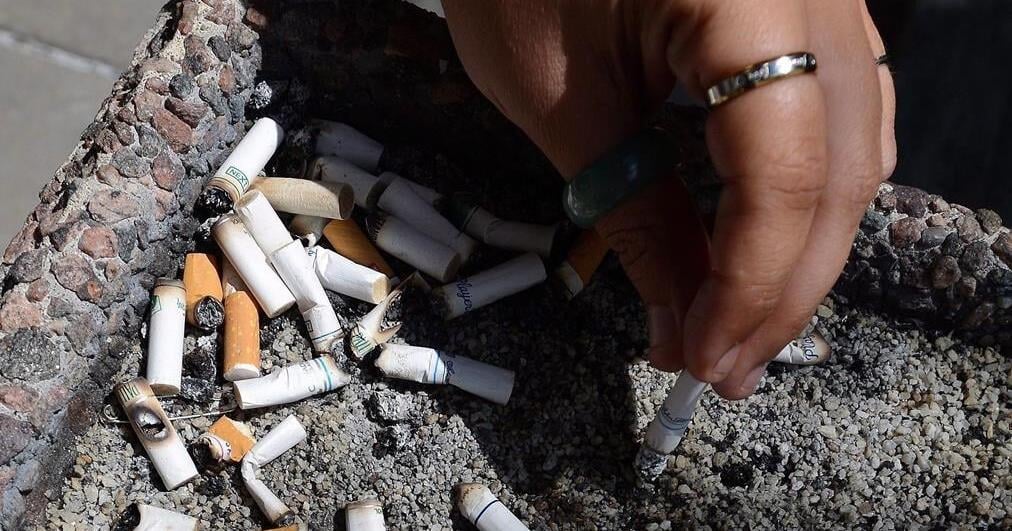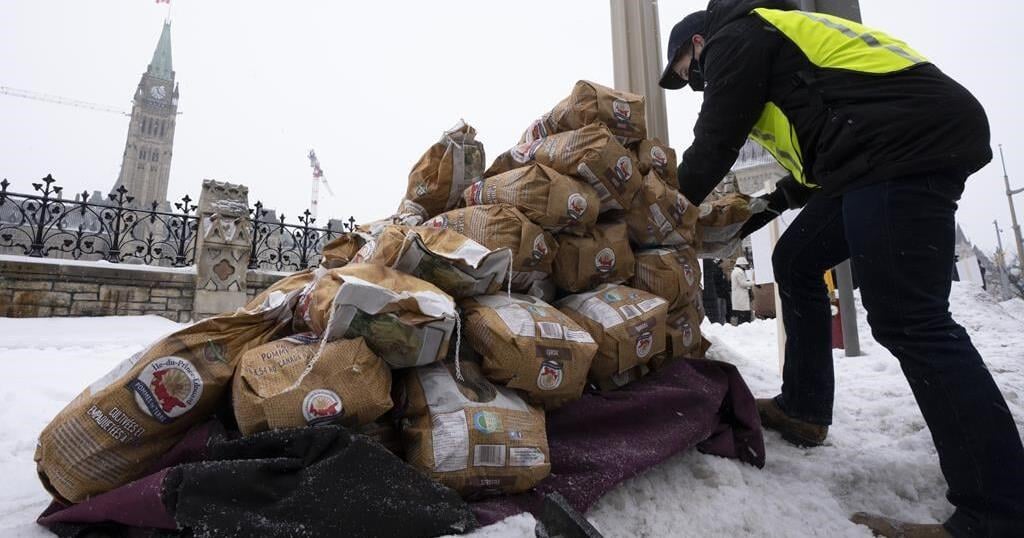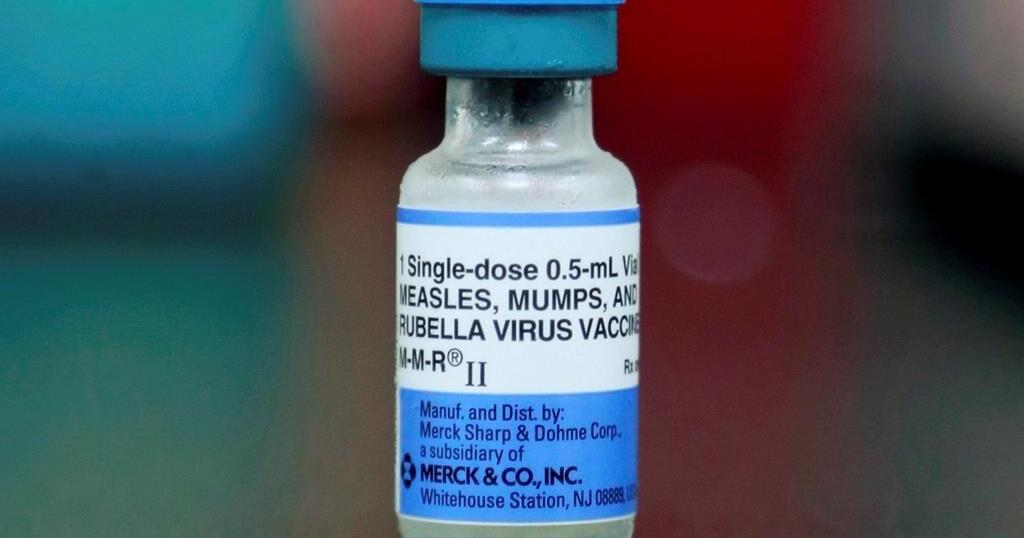MEXICO CITY (AP) — A global human rights watchdog on Wednesday implicated Venezuelan security forces and pro-government armed groups in killings that occurred during the protests that followed the country’s disputed July presidential election.
Human Rights Watch, in a report detailing repressive measures the government unleashed after the vote, asserted that credible evidence gathered and analyzed by researchers, forensic pathologists and arms experts ties Venezuela’s national guard and national police to some of the 24 killings that took place as people protested the outcome of the election. The organization also concluded that violent gangs aligned with the ruling party also “appear to be responsible” in some of the deaths.
Twenty-three of those killed were protesters or bystanders and one was a member of the Bolivarian National Guard.
“The repression we are seeing in Venezuela is shockingly brutal,” Juanita Goebertus, the organization’s director for the Americas, said in a statement. “Concerned governments need to take urgent steps to ensure that people are able to peacefully protest and that their vote is respected.”
The organization said it reached its conclusions regarding the killings based on interviews with witnesses, journalists and other sources; reviews of death certificates, videos, photographs; and analyses by forensic pathologists and arms experts.
Thousands of people, including minors, took to the streets across Venezuela hours after ruling party-loyal electoral authorities declared President Nicolás Maduro the winner of the election. The protests were largely peaceful, but demonstrators also toppled statues of Maduro’s predecessor, the late fiery leader Hugo Chávez, threw rocks at law enforcement officers and buildings, and burned police motorcycles and government propaganda.
Maduro and his ruling party allies, who controlled all aspects of government in the South American government, responded to the demonstrations with full force, carrying out arbitrary detentions, prosecutions as well as a campaign that encourages people to report relatives, neighbors and other acquaintances who participated in the protests or cast doubt on the results.
Among the killings detailed in the Human Rights Watch report is that of civil engineer and food truck worker Rancés Daniel Yzarra Bolívar. The organization said Yzarra Bolívar, 30, participated in the July 29 protests in the northern Venezuela city of Maracay.
A journalist told researchers the demonstration was initially peaceful, and a different witness reported protesters called for soldiers at a military compound to join them. A soldier instructed them to leave, and some did.
Researchers verified videos showing peaceful protesters as well as riot gear-clad National Guard officers arriving at the demonstration. Another video, which researchers geolocated to about 150 meters (490 feet) from the military facility, shows smoke near the compound and a person is heard saying it was 5:37 p.m. and officers were throwing tear gas to disperse demonstrators.
“At approximately 6 p.m., a bullet hit Yzarra Bolívar on the left side of his chest, a person close to him said,” according to the report. “Human Rights Watch analyzed and geolocated four videos showing Yzarra Bolívar injured and unconscious. In one verified video, taken by a journalist at 5:50 p.m. and posted 20 minutes later, two protesters are seen carrying Yzarra Bolívar to a location approximately 150 meters from the military compound. Other protesters are heard shouting ‘they killed him.'”
In the days after the election, Venezuelan security forces rounded up more than 2,000 people, including dozens of children, journalists, political leaders, campaign staffers and an attorney defending protesters. One local activist livestreamed her arrest by military intelligence officers as they broke into her home with a crowbar.
“Maduro and Attorney General Tarek Saab have said publicly that those arrested were responsible for violent events, terrorism, and other crimes,” Human Rights Watch said in the report. “However, Human Rights Watch repeatedly found cases of people arrested for just criticizing the government or participating in peaceful protests.”
The group said those arrested often have been kept incommunicado for weeks and most have been denied the right to hire a lawyer.
Unlike in previous presidential elections, the National Electoral Council did not release vote tallies backing Maduro’s claim to victory. But the main opposition coalition obtained vote tallies from more than 80% of the electronic voting machines used in the election and said its candidate, González, defeated Maduro by a 2-to-1 margin.
The lack of transparency over the results, coupled with widespread arrests that followed the anti-government protests, has drawn global condemnation against Maduro and his allies. The criticism grew Monday after a judge approved a prosecutor’s request for an arrest warrant for González.
___
Follow AP’s coverage of Latin America and the Caribbean at























